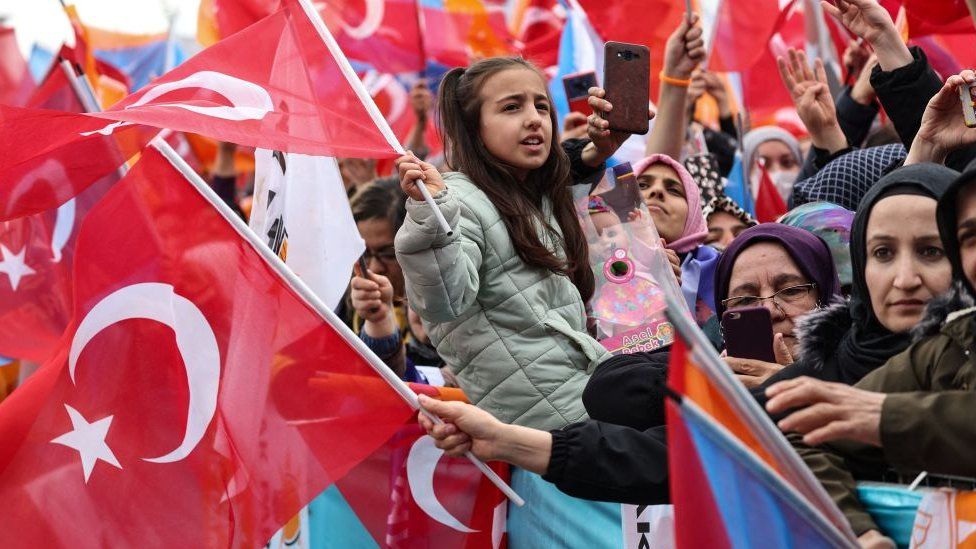Turkey elections: Erdogan and Kilicdaroglu offer stark choices for presidency

Turkey stands at a critical juncture as its citizens must choose between two leading contenders for the presidency, each offering distinct visions for the future of the country.
Recep Tayyip Erdogan, who has held power for over 20 years, pledges to establish a robust and collaborative Turkey, aiming to generate six million job opportunities. Erdogan also accuses the Western world of attempting to undermine his leadership. His political party, rooted in Islamism, aligns itself with traditional family values, while he portrays his opponents as “pro-LGBT.”
Kemal Kilicdaroglu, Erdogan’s main rival, enjoys broad support from the opposition and advocates for steering Turkey towards a more democratic and pro-Western position. He plans to revert the country, which is a NATO member, to a parliamentary system with a prime minister at the helm. Kilicdaroglu seeks to restore the independence of the judiciary, promote a free press, and position himself as an impartial leader, detached from any political party.
Erdogan currently wields extensive presidential powers, having governed under a state of emergency since 2017. Some believe that if he secures another term, there may not be significant changes as his authority is already substantial, and he may not seek to expand it further. Conversely, Kilicdaroglu aims to dismantle the presidential system and adopt a more impartial leadership approach, prioritizing the interests of all 85 million Turkish citizens.
These elections have far-reaching implications for Turkey’s trajectory, with Erdogan championing a strong and multilateral Turkey, while Kilicdaroglu advocates for a return to pro-Western policies, bolstered democracy, and independent institutions such as the judiciary and media.
In addition to Recep Tayyip Erdogan and Kemal Kilicdaroglu, there are five other parties in Kilicdaroglu’s alliance, each of which would have a vice president. Furthermore, Erdogan’s party colleagues who serve as mayors of Ankara and Istanbul would also hold vice presidential positions.
Before completely abolishing the powerful presidency, Kilicdaroglu’s coalition might need to utilize the presidency’s extensive powers to implement reforms if they lack sufficient control over the parliament.
Both parliamentary and presidential elections are scheduled to take place on May 14th. While Turkey is a member of NATO, Erdogan’s presidency has pursued close relationships with China and Russia. This includes the procurement of a Russian S-400 air defense system and the inauguration of Turkey’s first Russian-built nuclear plant, signaling closer ties with Russia ahead of the elections.
Erdogan advocates for a multilateral approach, positioning Turkey as a “haven of peace and security.” He also presents Ankara as a potential mediator in the ongoing Russian-Ukrainian conflict. On the other hand, Kilicdaroglu and his allies aim to revive Turkey’s EU accession process and restore military ties with the United States while maintaining relations with Russia.
Should Erdogan remain in power, Selim Koru believes that he will continue to steer Turkey away from the West while retaining its NATO membership. Erdogan envisions a future where Turkey’s NATO affiliation becomes less relevant in the medium to long term.
Picture Courtesy: Google/images are subject to copyright
